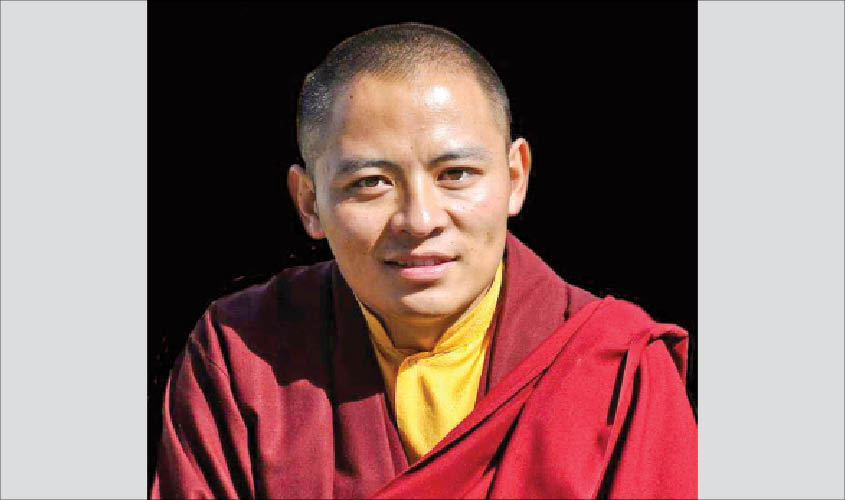The inaugural batch of the Naropa Fellowship, comprising 56 fellows, began in September this year. The one-year residential fellowship has been designed with the purpose of bringing about positive change in Ladakh and the Himalayan region. The main focus of the Naropa Fellowship is to create and nurture agents of change who will work towards building a robust socio-economic environment in Ladakh and surrounding places. This first-of-its-kind initiative seeks to foster entrepreneurship, retain local talent and preserve the cultural heritage of the region.
The two figures behind this post-graduate programme are Dr Pramath Raj Sinha, the founding dean of the Indian School of Business (ISB), Hyderabad, and the co-founder of Ashoka University, Sonipat; and Drukpa Thuksey Rinpoche, chairperson of the award-winning green school in Ladakh, the Druk White
Lotus School.
Talking about the idea behind starting the fellowship, Rinpoche said, “The Himalayan region is rich in culture and history. When we talk about our culture, it is not only about preserving our history but also about love and compassion among people, which we are lacking in recent times. Even the children born and brought up in this beautiful place leave for big cities. So we thought of starting the Naropa Fellowship for our children to create possibilities for them and for the region.”

Among the aims of the fellowship is the revival of the Himalayan economy, and the preservation of its culture and heritage by creating employment opportunities for young locals, so they don’t have to relocate to other cities. Apoorv Bamba, the head coach for entrepreneurship in this fellowship programme, said, “The intension of the Naropa Fellowship is to create job opportunities for the region. It is based on the pillar of entrepreneurship. So, the fellows of Naropa Fellowship not only want to create job opportunities for themselves, but also for the local population… The motive of the Naropa Fellowship is to a create sustainable-growth module, so that we can preserve our culture and not give in to the forces of commercialisation,” added Bamba.
Tourism has always been the primary source of income for the people of Ladakh and the Himalayan region. However, the recent tourism boom here, thanks to Bollywood films such as 3 Idiots, has taken its toll. It has put unprecedented pressure on the region’s limited resources.
Rinpoche reflected on this problem and said that tourists ought to be more considerate when travelling to Ladakh. He said, “Tourists need to understand that there is a difference between the Ladakh/Himalaya region and other tourist places in India like Goa. The Himalayan region is different in nature, culture and sustainability options. So when they visit our land, we want them to be more sensible and responsible towards our nature and culture.”
One of the objectives of the Naropa Fellowship is to focus on creating a sustainable tourism module, whereby tourists would be made aware of this region’s history and ecology.

For this module, fellows were asked to go out on field visits to understand the region’s ecosystem. They then came up with a project each to help solve the different problems faced by locals. The fellows visited villages and interviewed the residents. They also gathered information about local industries and how they impact the job market.
There are a total 19 projects which are in progress as part of the Naropa Fellowship. These include “An Innovative Greenhouse”, for devising economic and sustainable greenhouse solutions for high altitude farming; “Himalayan Yeti Foundation (HYF)”, to fight cases of environmental injustice in the region; and “Ladakh Basket”, to empower locals by giving them a platform where they can sell indigenous Ladakhi products.
We also spoke to Nischita Bysani, one of the fellows who is working on “An Innovative Greenhouse” project. Sharing with us his thoughts on the fellowship and on his work here, he said, “With this initiative, our goal is to promote great opportunities for those in need. With access to the right resources, people can become empowered by their own abilities and gain the confidence to fulfill their farming potential, especially in harsh climatic condition.”

